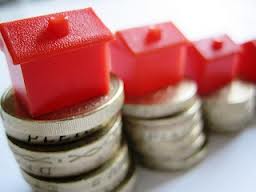 In my previous post on housing I posit that the money we spend on housing may be thought of as fulfilling a combination of functions – namely necessity, consumption, and investment. To do the investment part right, we should try to separate in a clear-headed way which function we’re spending money on. Housing as an investment has many advantages, but its also not a slam dunk. I review here some of the biggest risks of investing in your house.
In my previous post on housing I posit that the money we spend on housing may be thought of as fulfilling a combination of functions – namely necessity, consumption, and investment. To do the investment part right, we should try to separate in a clear-headed way which function we’re spending money on. Housing as an investment has many advantages, but its also not a slam dunk. I review here some of the biggest risks of investing in your house.
Risks
1. Negative Cash Flow – Residential real estate generally is a negative cash-flow investment. Unlike stocks or bonds, for example, which typically generate cash for their owners, real estate always costs money to own. There are taxes of course, but also frequently utilities, complicated electrical and mechanical systems to repair, housing association fees, and lawns to cut.
In addition, if you borrow money to own real estate, the loan often constitutes your largest source of negative cash flow. If you are like most people, negative cash flow under many scenarios can turn the whole investment into a nightmare.
2. Illiquidity – Real estate notoriously sells slowly and expensively. Residential real estate cannot be transferred from one owner to another without thousands of dollars in transaction costs, and fees that constitute a meaningful percentage of value.[1]
The non-uniform nature of residential real estate also contributes to illiquidity. An exchange-traded stock or a bond shares uniform characteristics with millions or billions of dollars in value of identical securities, allowing for easy transactions and uniform pricing.
Every housing unit, by contrast, differs in price from every other unit. Physical wear and tear of course alters from unit to unit. Unlike a stock or bond, once a house is ‘born’ it begins to diverge in price even from its identical twin house.
Even identical floor-plan apartments can vary in price, due to differences in view, angle of light, height, or expected noise from the street.
All of this variation leads to price uncertainty, partly justifying the high transaction costs for real estate brokers.
3. Degradation – While stocks and bond may fluctuate in value, the brutal elements of the physical world do not fray financial securities like it does real estate. We don’t care if the paper certificate is ripped or dog-chewed or hole-punched, as the value of a stock or bond is electronic, notional, and immune to inclement weather. Broken windows, chipped paint, and flooded basements, however, don’t fix themselves. You can’t ever just let an improved property sit for 30 years the way you can with a stock or bond.
4. Leverage – Or: What goes up, can come down. Conventional mortgages allow you to put down 20% of purchase value on a house, and obtain four times that amount in debt – something unavailable to small-time investors in any other investing situation. With ordinary price appreciation or real estate inflation over time, the financial return on your down payment jumps dramatically. When real estate declines in value, however, you end up losing your down payment just as quickly.
Borrowing money, by itself, doesn’t make you money. Borrowing money to make an investment just exaggerates the rate of return on your investment in whatever direction the asset moves, for better or worse. This is why big-time real estate developers periodically lose extraordinary fortunes in economic downturns – it’s all about the leverage. It’s also why declining real estate value in a city – like Detroit since the 1980s – eviscerates any home-owning middle class. It’s all about the leverage.
Before you buy your shelter rather than rent it, I recommend digging into each of these risks as they apply to your own situation If you decide, upon a review of the risks, that renting makes more sense, that’s ok. I am certain that in the past decade we had too many buyers of their shelter, rather than renters. Undoing the damage of too many buyers of shelter is painful and destructive for individual households and the economy.
Of course I don’t recommend renting forever. In the next post I review some of the great personal finance opportunities only available through home ownership.
See previous post On Housing, Part I – What we do when we invest in a house
And subsequent post On Housing, Part III – The Opportunities
[1] Real Estate broker fees on residential real estate still start at 6%, while additional transaction fees push costs up from there. Frequently to the 8% of sale value range and above.
Post read (13513) times.




